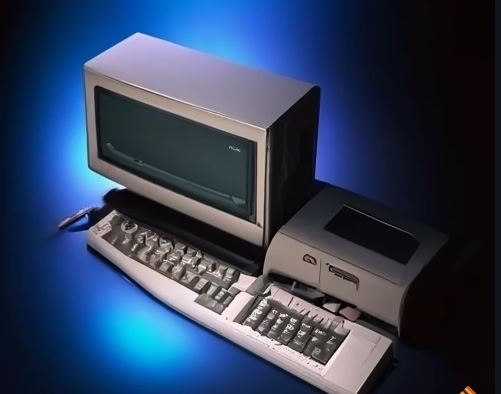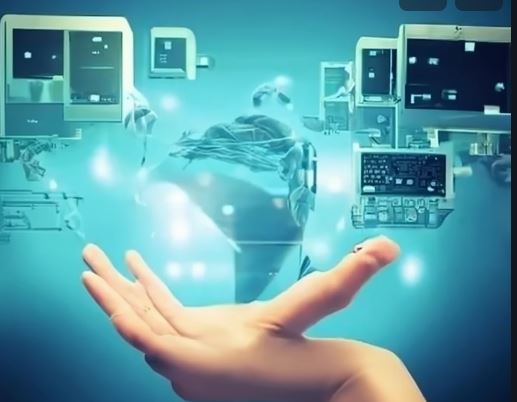Progress of Information Technology
1. Information technology
Information technology, as the term is commonly used today, can be defined in a number of ways. Perhaps the simplest definition is that information technology is the application of computers and telecommunications equipment to store, retrieve, transmit and manipulate data, often in the context of a business or other enterprise.
A more elaborate definition would add that information technology is the study or use of electronic equipment, especially computers, for storing, retrieving, and sending information.
Information technology is a relatively new academic discipline that emerged from the intersection of several older fields in the late 20th century, including computer science, information science, and business. The term “information technology” was first used in an article published in the Harvard Business Review in 1957.
The article, written by Frederick Winslow Taylor, described how the efficiency of workers could be increased through the use of specialized tools and machines. Taylor’s article was discussing the application of information technology to business, but the term did not gain widespread use until the early 1980s.
In the intervening years, computer science and information science became well-established academic disciplines, and the term “information technology” came to be used to describe the application of these disciplines to business.
The term “information technology” is now used in a variety of ways, and the meaning of the term has evolved over time. Today, information technology is commonly used to refer to the various types of technology that are used to create, store, retrieve, transmit, and manipulate data.
This includes everything from personal computers and interactive whiteboards to enterprise-wide systems such as enterprise resource planning (ERP) and customer relationship management (CRM) systems.
In some cases, the term “information technology” is used to refer specifically to information systems, which are defined as a set of hardware, software, and people that work together to collect, process, and distribute information.
In other cases, the term is used more broadly to encompass all of the various types of technology that are used in the creation, storage, retrieval, and transmission of information.
No matter how it is defined, there is no doubt that information technology has become an
2. The history of information technology

The history of information technology is a long and complicated one. It began with the invention of the printing press in the 15th century and has since evolved into the complex and sophisticated systems we use today.
The first major milestone in the history of information technology was the invention of the printing press by Johannes Gutenberg in the 15th century. This invention revolutionized the way information was disseminated and allowed for the mass production of books and other printed materials.
The next major milestone was the development of the telegraph in the 19th century. This invention allowed for the instantaneous transmission of information over long distances and laid the foundation for the development of the telephone and other forms of communication.
The 20th century saw the development of many different types of information technology, including the radio, television, computer, and internet. These inventions changed the way we communicate and receive information and have had a profound impact on our society.
The 21st century has seen the continued development of information technology, with the advent of new technologies such as mobile phones, tablets, and social media. Information technology has become an integral part of our lives and is constantly evolving to meet our ever-changing needs.
3. The future of information technology
Data innovation has made considerable progress over the most recent couple of many years. From the early days of the internet to the modern day, it has revolutionized the way we live and work. Yet, what does the future hold for data innovation?
There are many emerging technologies that have the potential to change the way we use information technology. Some of these technologies are still in their infancy, while others are starting to gain traction in the marketplace.
One of the most promising technologies is quantum computing. Quantum PCs can perform computations at a lot quicker rate than conventional PCs. They are additionally ready to store more data than conventional PCs. This makes them ideal for tasks such as data analysis and machine learning.
Another emerging technology is blockchain. Blockchain is a disseminated information base that considers secure, straightforward and carefully designed exchanges. This makes it ideal for applications such as financial services and supply chain management.
The future of information technology is likely to be defined by these and other emerging technologies. We can expect faster, more powerful and more secure computing platforms. We can also expect new applications and services that we can only imagine today.
4. The impact of information technology on society
Data innovation has altered the manner in which we live and work. It has made communication and collaboration easier and more efficient, and has made it possible to connect with people all over the world. It has also had a major impact on the economy, and has created new opportunities for businesses and individuals.
The impact of information technology on society can be divided into two categories: the positive and the negative.
The positive impact of information technology on society includes the following:
- Improved communication and collaboration: Information technology has made communication and collaboration easier and more efficient. It has made it possible to connect with people all over the world, and has made it easier to share information and ideas.
- Increased productivity: Information technology has made it possible to increase productivity in many areas of work. For example, it has made it possible to automate tasks that were previously done manually, and has made it possible to manage and store information more efficiently.
- New opportunities: Information technology has created new opportunities for businesses and individuals. For example, it has made it possible to start and operate businesses online, and has made it possible to work from home.
- Greater access to information: Information technology has made it possible to have greater access to information. For example, it has made it possible to search for and find information more easily, and has made it possible to share information more easily.
- Improved quality of life: Information technology has improved the quality of life in many ways. For example, it has made it possible to stay in touch with friends and family more easily, and has made it possible to access entertainment and educational resources.
The negative impact of information technology on society can be divided into two categories: the personal and the social.
The personal negative impact of information technology includes the following:
- Job loss: Information technology has made it possible to automate tasks that were previously done manually. This has resulted in the loss of jobs for many people.
- Identity theft: Information technology has made it possible for criminals to obtain personal information, such as credit card numbers and social security numbers. This information can be used to commit identity theft, which can
5. The benefits of information technology
Data innovation has changed the manner in which we live and work. Today, we can communicate with anyone in the world instantly, access vast amounts of information at the click of a button, and conduct business online.
The benefits of information technology are manifold. Here are just five of the many ways IT has transformed our lives for the better:
Communication
With email, instant messaging, video conferencing, and social media, we can stay in touch with friends, family, and colleagues no matter where they are in the world. This has made it easier to work remotely, collaborate on projects, and stay up-to-date with the latest news and developments.
Education
The internet has made it possible to access a wealth of information and learning resources. Whether you want to learn about a new topic, brush up on your skills, or earn a qualification, there’s plenty of information available online.
Business
The internet has transformed the way businesses operate. Companies can now reach a global market with ease, and conduct much of their business online. This includes everything from marketing and sales to customer service and invoicing.
Entertainment
From streaming movies and TV shows to playing games and listening to music, there’s no shortage of ways to entertain yourself online. What’s more, with the appearance of computer generated reality, the potential outcomes are inestimable.
Shopping
The web has made shopping simpler than at any other tim. Whether you’re looking for clothes, groceries, or a new appliance, you can find what you need with just a few clicks. And with home delivery options, you don’t even have to leave the house.
Share this post:

